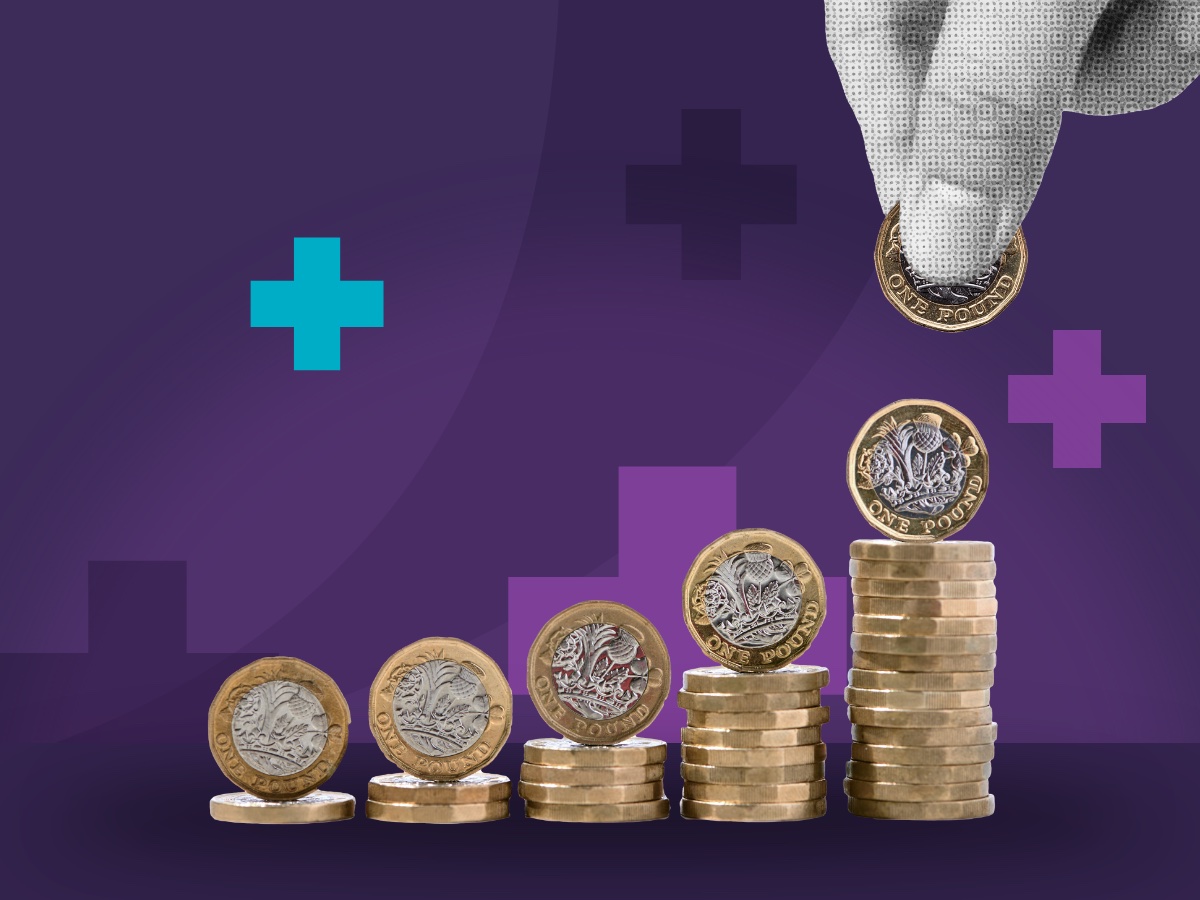
Are you making the right choices with your money today? With investing, your financial future starts now. Whether its larger lump sum investments, or little and often investing, all of your financial choices will have a ripple effect that will shape the future of your finances.
Start by setting a goal
At True Potential, we believe that every successful journey starts with a destination in mind. What is your investment goal? By setting this out and having a clear vision that you stay disciplined towards, you’re more likely to take the actions necessary to reach your goal.
Once you know your goal, you can calculate how long you may need to invest for and how much you may need to invest with an assumed rate of growth to achieve your target. Keep in mind that the length of time will vary based on market movements, the future can’t be predicted, any calculations are an assumption.
Start early
One of the best ways to think about a financial ripple effect is the impact of little and often investing from a young age.
Young people are in a position where they could benefit from decades invested in the markets. Rather than having to add a larger amount of money into a Pension pot at a later stage, little and often contributions have the time on their side to potentially grow into something significant.
Just like the ripple effect of throwing a pebble into a lake and seeing the water expand outwards, adding money into your investment today could expand into larger sums over time.
One of the reasons little and often investing can be effective through time is the potential for compound growth. In essence, this is the potential for growth on your growth. While growth isn’t guaranteed in any investment, the aim of compound growth is to create layers of investment growth. In addition to a financial ripple effect, think about a snowball effect, where as a snowball rolls forward continually picking up more snow as it grows bigger. This is like compound growth in your investment, you potentially aren’t just getting growth on your initial investment, you are potentially getting growth on the growth, and potentially onwards with growth on that growth.
As you can imagine, over time, this compounding of growth can generate significant returns, and the longer you stay invested the more potential you have for your investment. However, keep in mind that past performance isn’t a guide to future performance, with investing your capital is at risk as the value of the funds you are invested in could go down as well as up.
It isn’t too late
If you don’t have as much time on your side, it isn’t too late to make a difference. Something is always better than nothing, and every single pound counts towards your goal. You never know what that pound could be worth with time and growth in your investment.
Keep in mind, even if you’re approaching retirement, what you invest today could still benefit from decades of growth in an investment. People are living longer, and you may be invested for another twenty or thirty years even after retiring. Even when taking an income, the remaining pension can still benefit from growth, even though your appetite to risk and loss may change.
This is an important point for any retirees considering withdrawing from your Pension, your investment could still have time to grow further. If you take your 25% tax free lump sum from your Pension too early you may be missing out on what that 25% would have been worth if left invested for longer. You don’t need to take the 25% all at once, it may make sense to stay invested longer. Once you crystalise a Pension, you will have to take your tax free cash in the same tax year, but not necessarily all in one go.
Passing on wealth to the next generation
Some investors may choose to never withdraw their Pension, deciding it is more tax efficient as a financial legacy to pass the wealth to the next generation, as money left in a Pension is not liable to inheritance tax. However, your beneficiary may have to pay income tax at their marginal rate when withdrawing the Pension.
You can name your beneficiaries in your Pension expression of wish – money passed on through a Pension sits outside of your estate and isn’t normally liable to inheritance tax. With this in mind, there’s a potential financial ripple effect for generations to come, even the money invested towards the end of your career could still be growing even after you have passed.
So, what can you do today?
Whether its a ripple effect or a snowball effect in your investments that you visualise, it is all about starting with small actions that you’ll eventually see expand into bigger outcomes.
The simplest action you could take with your money today would be to set a direct debit at the start of the month into your investment. This is known as ‘paying yourself first’, adding to your long-term investments before any leisure spending takes place.
What else can you do today? It is always a good time to do a personal finance audit, which may include setting yourself a budget and checking up on your emergency fund. You should aim to keep at least three to six months’ worth of expense as an emergency fund, as this could help with any unexpected expenses.
As part of your personal finance audit, you may also want to consider your Pensions. Do you have any Pensions from previous employments? Consolidating these Pensions into one would be a good example of a financial ripple effect, taking the simple step of moving your Pensions into one may mean less charges and potentially make it easier to follow your Pension performance. When considering Pension consolidation, just be aware that some Pensions you are invested in may have exit fees and certain Pensions can provide valuable guarantees, such as guaranteed annuity rates, protected higher tax-free cash percentages and protected retirement ages. Some plans, often workplace schemes, also benefit from low charges that cannot be matched elsewhere. These guarantees and benefits could be lost if transferred and therefore Pension consolidation is not right for everyone.
If you are in any doubts about how what you do today could affect your financial future, then it may be time to speak to a financial adviser. Do more with your money and consider how small actions you take today could grow into bigger outcomes over time.
If you need financial advice or would like to open an account yourself click ‘Start Investing’ or call our dedicated team on 0191 625 0350.
With investing, your capital is at risk. Investments can fluctuate in value and you may get back less than you invest. Pension eligibility and tax rules apply. Tax is subject to an individual’s personal circumstances, and tax rules can change at any time. This blog is not personal financial advice.
Back to blog






